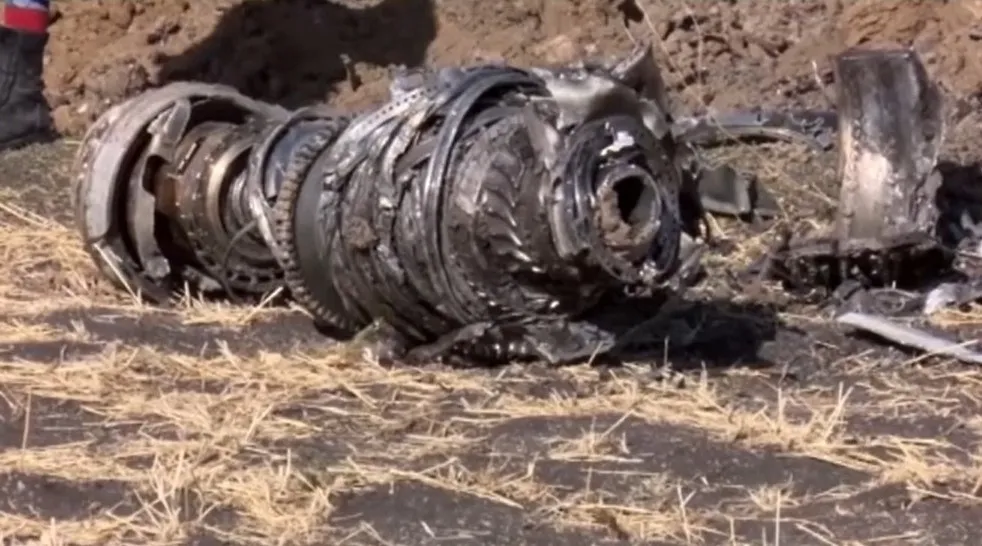
Boeing advisor on MAX tragedies retires
Dec 26, 2019

Boeing's chief technical advisor, who played a pivotal role in addressing the issues surrounding the 737 MAX tragedies, has announced his retirement. This decision comes in the wake of ongoing scrutiny and investigations into the design flaws that contributed to two fatal crashes, leading to a global grounding of the aircraft. During his tenure, the advisor was instrumental in implementing safety upgrades and improving regulatory processes. His departure marks a significant transition for Boeing as the company continues to navigate the complex landscape of aviation safety and regain public trust in its aircraft.
The aviation industry has witnessed significant changes and challenges in recent years, especially following the tragedies associated with the Boeing 737 MAX. As Boeing faces ongoing scrutiny and strives to rebuild its reputation, the retirement of a key advisor on the MAX tragedies marks another chapter in the company’s journey. This article explores the implications of this retirement and the broader context surrounding it.
The Role of the Advisor
The advisor played a crucial part in navigating the aftermath of the MAX tragedies, which resulted in two fatal crashes and grounded the fleet worldwide. Their insights were instrumental in addressing safety concerns, improving compliance, and guiding Boeing through a turbulent period. The advisor's experience and knowledge were pivotal in ensuring that Boeing focused on transparency and accountability in its operations.
Impacts of the Retirement
With the advisor's retirement, Boeing faces the challenge of continuing the momentum towards safety and regulatory compliance. The departure could lead to a reassessment of strategies implemented during the crisis management phase. It is essential for Boeing to ensure that there is continuity in leadership and that lessons learned from the past are not forgotten.
Continuing Challenges for Boeing
Despite the efforts made, Boeing still grapples with lingering concerns over the 737 MAX. Regulatory agencies, airlines, and the flying public remain wary. The company must demonstrate its commitment to safety and quality assurance to regain trust. This involves rigorous training programs, enhanced safety protocols, and transparent communication with all stakeholders.
Charting a New Course
As the aviation landscape continues to evolve, Boeing must adapt its strategies to meet new challenges. The retirement of the advisor opens the door for fresh perspectives and innovative approaches. Boeing has the opportunity to bring in new talent that can contribute to a culture of safety and innovation. The following table outlines some potential areas of focus for the company moving forward:
| Focus Area | Potential Actions |
|---|---|
| Safety Enhancements | Implement advanced training programs for pilots and crew |
| Regulatory Compliance | Enhance collaboration with aviation regulators globally |
| Public Relations | Launch campaigns focused on transparency and safety measures |
| Innovation | Invest in research for next-generation aircraft technology |
Strengthening Trust with Stakeholders
Regaining the trust of stakeholders, including airlines, regulators, and the flying public, will be essential for Boeing’s recovery. The company must prioritize open communication and demonstrate accountability in its operations. Engaging with stakeholders through forums, public discussions, and transparent reporting can help rebuild confidence in the brand.
Future Outlook for Boeing
Looking ahead, Boeing has the potential to emerge stronger from this transitional period. The airline industry is gradually recovering from the impacts of the pandemic, and there is an increasing demand for air travel. By focusing on safety, innovation, and stakeholder engagement, Boeing can align itself with the needs of the market and position itself as a leader in aviation.
The Importance of Learning from the Past
As Boeing moves forward, it is crucial to keep the lessons learned from the MAX tragedies at the forefront of its operations. The importance of safety and ethical considerations in aircraft design and manufacturing cannot be overstated. A commitment to continuous improvement and learning will be vital for Boeing’s long-term success.
Conclusion
The retirement of the Boeing advisor on the MAX tragedies signifies a pivotal moment for the company. While it faces challenges, there are also opportunities for growth and improvement. By focusing on safety, compliance, and stakeholder trust, Boeing can work towards a brighter future in the aviation industry. The path forward will require dedication, innovation, and a steadfast commitment to learning from past mistakes.
Related Articles

Explore Thailand: The Best Islands to Visit for Paradise, Adventure, and Relaxation

The Ultimate Guide to the Best Islands in Thailand for Your Next Getaway

Do babies need passports? How to get a passport for a newborn

How to get a U.S. passport fast: here’s how to expedite the process

What is Mobile Passport Control: 5 reasons why you should use it

SENTRI vs. Global Entry: A detailed guide

Do you need a passport to go to the Bahamas? Let’s find out

Do you need a passport to go to Mexico? A detailed guide

Do you need a passport to go to Canada? We got the answer

Do You Need a Passport for a Cruise: An Essential Travel Guide

Booster Seat Requirements: All the Rules to Follow in Your Rental Car

What Are the World’s Most Powerful Passports, and How Does Yours Rank?

How to Take a Passport Photo at Home: A Helpful Guide

You've got to have heart! Southwest's new livery

Your opinion: Should water be free on low cost carriers?

Young women bolder than guys as solo travellers
